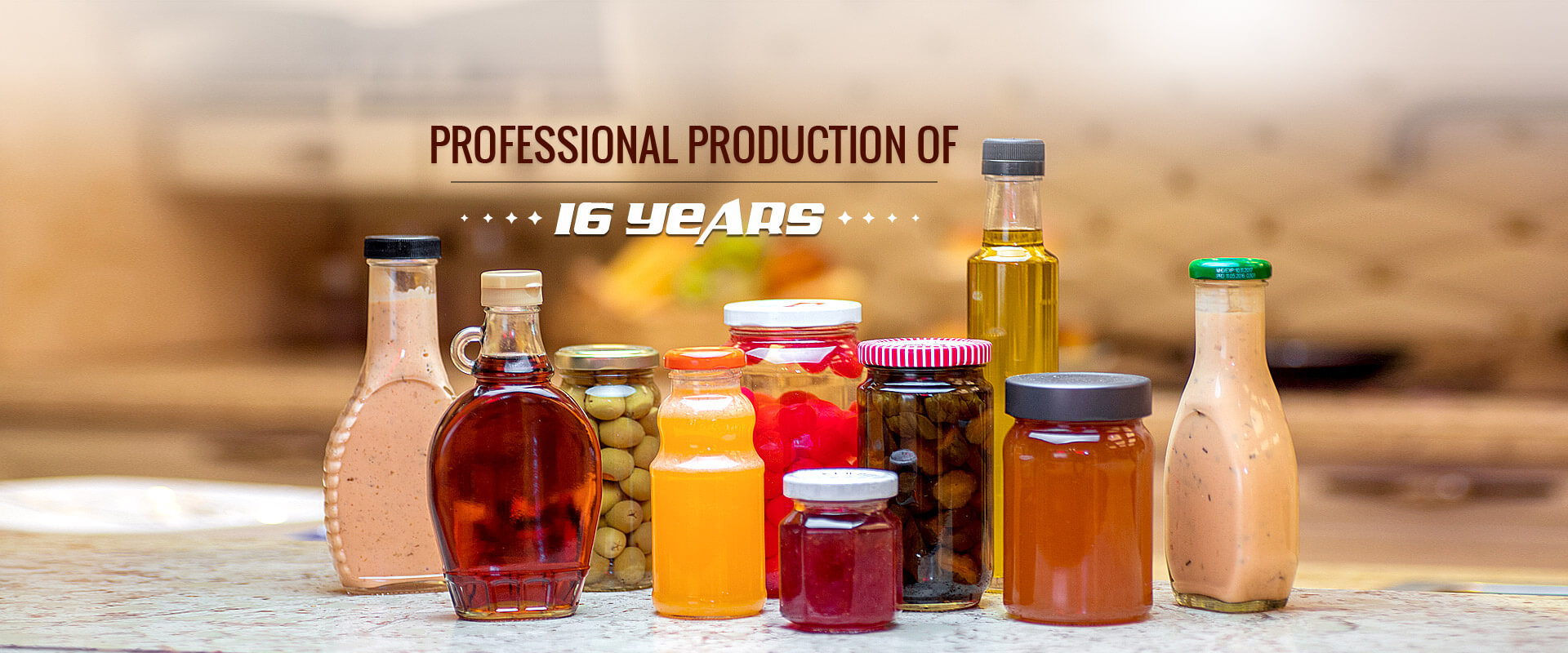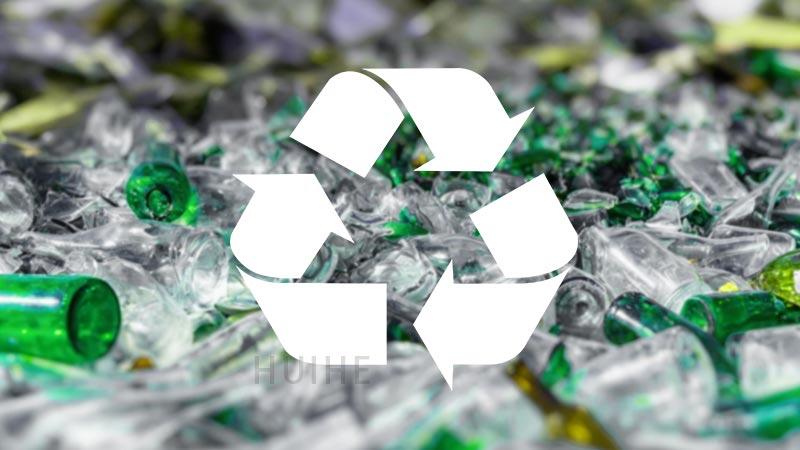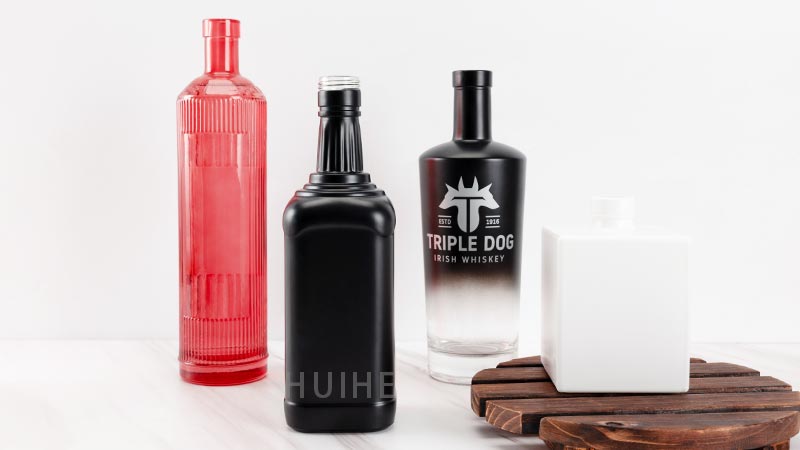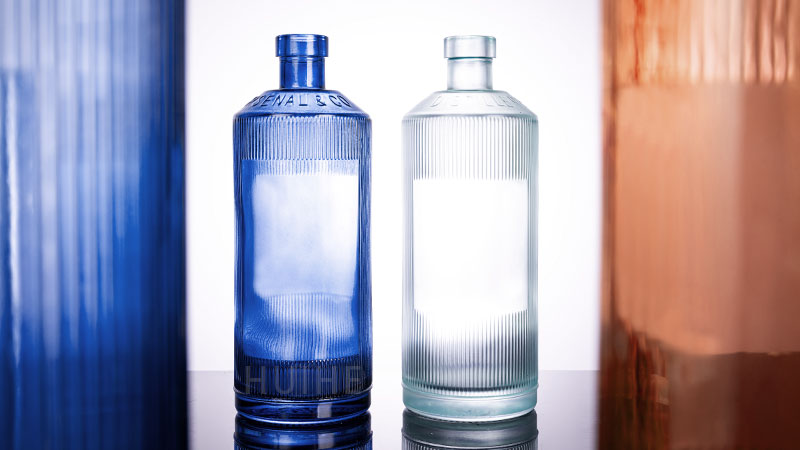
Did you know that glass whiskey bottles can be recycled endlessly without losing quality? But are they truly eco-friendly, and how can we ensure they're recycled properly?
In this article, we'll dive into the recyclability of glass whiskey bottles, examining the process and its environmental impact. You'll learn how to properly dispose of or reuse your liquor bottles and why it matters for a sustainable future.

A glass whiskey bottle is a container used to store whiskey, typically made from glass to preserve the drink's flavor and integrity. Glass has been the material of choice for whiskey bottles for decades, primarily because of its non-reactive nature, which helps maintain the taste of the liquor. Unlike plastic, glass does not leach chemicals into the contents, which is crucial for the preservation of high-quality spirits.
Glass whiskey bottles come in a variety of shapes, sizes, and colors, each designed to appeal to different market segments, from premium brands to more mass-market options. The design of the bottle often reflects the quality of the spirit inside, with premium whiskey brands using uniquely shaped bottles or special packaging for collectors. Benefits of Glass for Whiskey Bottles:
Benefit | Description |
Preserves Flavor | Glass helps maintain the whiskey’s taste and aroma, ensuring the product stays fresh for longer. |
Elegance and Branding | Glass bottles offer a premium look, which is important for high-end whiskey branding. |
Recyclability | Glass can be recycled endlessly, making it an eco-friendly choice compared to plastic. |
Recycling glass whiskey bottles has significant environmental and economic benefits. Glass is 100% recyclable and can be reused multiple times without losing its quality. This is a major reason why it is considered one of the best materials for sustainability.
When glass whiskey bottles are recycled, they can be melted down and transformed into new bottles or other glass products. Recycling glass reduces the need for raw materials, decreases energy consumption, and lowers carbon emissions compared to making new glass. This means that when you recycle your liquor bottles, you help reduce the environmental impact of manufacturing processes.
Recycling glass is cheaper than producing new glass. By reusing glass whiskey bottles, companies can reduce production costs and pass those savings onto consumers. Additionally, recycled glass is more cost-effective because it requires less energy to process compared to raw materials.
This is an especially important factor in today’s world, where industries are under pressure to reduce costs while maintaining high-quality standards. By integrating recycled glass into the production process, whiskey companies can contribute to a more cost-efficient and sustainable manufacturing cycle.

Recycling glass whiskey bottles is a simple yet crucial process that plays a significant role in promoting sustainability and reducing environmental impact. Below are the key features that make recycling glass bottles so advantageous:
Glass stands out as a material because it is 100% recyclable, meaning it can be reused infinitely without any loss of quality. Unlike other materials like plastic or paper, which degrade after several recycling cycles and eventually lose their strength and usefulness, glass retains its integrity even after countless rounds of recycling. This unique characteristic ensures that glass whiskey bottles can be continually recycled into new bottles or other glass products without compromising their structural properties. The result is a sustainable and efficient loop that minimizes waste, reduces the need for new raw materials, and conserves natural resources. This infinite recyclability makes glass one of the most environmentally friendly packaging materials available today.
Recycling glass is not only beneficial for the environment but also more energy-efficient than producing new glass from virgin materials. When glass whiskey bottles are recycled, the process uses significantly less energy compared to making new glass from raw materials like sand, soda ash, and limestone. In fact, it is estimated that for every ton of glass recycled, there are energy savings equivalent to around 600-700 kWh, which is enough electricity to power a typical household for several weeks. This reduction in energy consumption directly leads to a lower carbon footprint and helps to mitigate the environmental impact of manufacturing new glass.
Furthermore, glass recycling helps reduce the need for mining raw materials, which requires significant energy and often leads to environmental degradation. By recycling, we decrease the amount of sand, soda ash, and other minerals that need to be extracted from the earth. This also reduces the carbon emissions generated by transporting these raw materials across long distances, thus contributing to both energy conservation and the preservation of ecosystems.
Another key benefit of recycling glass whiskey bottles is the reduction in landfill waste. Glass is a non-biodegradable material, which means that if it is not recycled, it can persist in landfills for hundreds of years without breaking down. By recycling glass bottles, we divert them from landfills, reducing the amount of waste that accumulates over time. This is particularly important as landfills across the world continue to face capacity issues. Recycling glass bottles, therefore, helps in waste management, making sure that fewer materials end up in landfills and more are reused or repurposed.
Glass bottle recycling significantly helps in conserving natural resources. When glass is recycled, the need for extracting raw materials from the earth is greatly diminished. Mining and quarrying for sand, soda ash, and other raw materials used in glass production can be destructive to ecosystems, leading to habitat loss, water pollution, and soil degradation. By reducing the demand for new raw materials, glass recycling helps protect valuable natural resources, reduces the environmental footprint of production processes, and promotes the responsible use of the planet's resources.
In addition to environmental benefits, glass bottle recycling has positive economic impacts. Recycling glass supports local economies by creating jobs in collection, sorting, and processing facilities. It also provides opportunities for new industries focused on the reuse and repurposing of recycled glass. These industries can manufacture a wide variety of products, such as construction materials, tiles, or even new glass bottles. As demand for recycled glass increases, it can lead to greater economic growth and innovation within the recycling sector, contributing to the creation of green jobs that support sustainable practices.
Recycling glass whiskey bottles also contributes to better health and safety outcomes. By keeping glass bottles out of landfills, the risks associated with the exposure to hazardous chemicals and leachates from decomposing waste are reduced. Additionally, recycling glass reduces the need for new production facilities, which can emit harmful pollutants into the air and water. By minimizing industrial processes and promoting a circular economy, glass recycling creates a safer environment for both human health and wildlife.
Recycling glass whiskey bottles is an essential aspect of promoting a circular economy, where products are designed for longevity and continual reuse. Glass recycling allows for the constant circulation of materials back into the production chain, reducing the need for new resources and promoting a more sustainable consumption model. The more we recycle glass, the less pressure we place on finite resources, ensuring that future generations will have access to the same high-quality materials that we enjoy today. This contributes to a future where waste is minimized, and sustainability is the norm.
By adopting glass whiskey bottle recycling at a larger scale, individuals and industries can collectively contribute to a more sustainable world. These key features underscore why recycling glass is not just a good practice but an essential step toward building a more responsible and eco-friendly society.

Recycling glass whiskey bottles involves more than just tossing them into the recycling bin. To ensure they are properly recycled and don't end up in landfills, follow these simple steps:
Before recycling your liquor bottle, it's important to clean it. Remove any leftover whiskey and rinse the bottle thoroughly. Residue from alcohol can contaminate the recycling process, so making sure the bottle is clean is crucial.
Some local recycling facilities may also reject bottles that are not properly cleaned, as leftover liquids or debris can affect the quality of the recycled material. A simple rinse ensures that your bottle is ready for recycling.
Glass bottles often come with caps made of metal, plastic, or cork. These should be removed before placing the bottle in the recycling bin. Labels, especially plastic ones, should also be removed as they can complicate the recycling process. In some cases, labels can be left on, but it's always better to remove them when possible.
Removing the caps and labels ensures that the glass whiskey bottle is in its purest form and can be easily processed during the recycling stage.
Ensure that your glass whiskey bottle is placed in the appropriate recycling bin. Some localities have dedicated glass recycling bins, while others may require you to take the bottles to a drop-off recycling center. Always check your local recycling guidelines to ensure you’re following the correct procedure.
By properly sorting your recyclables, you ensure that your glass bottles are recycled efficiently, helping to create a cleaner, more sustainable environment.
The whiskey bottle recycling process plays a significant role in advancing the broader sustainability efforts within the whiskey industry. With increasing environmental concerns, many whiskey companies are actively exploring ways to reduce their ecological footprint. One of the key methods they are adopting is the use of recycled glass in packaging. This not only helps reduce waste but also signals a commitment to eco-friendly practices. As more consumers prioritize sustainability, whiskey companies are becoming more mindful of their packaging choices, aligning with global efforts to minimize waste and protect the planet.
Some whiskey brands have already taken proactive steps by incorporating recycled glass into their packaging. This is an important move toward sustainability in the production process. By using recycled glass whiskey bottles, companies can drastically reduce their environmental impact. The use of recycled glass significantly reduces the energy required in manufacturing, as it uses less energy than producing new glass from raw materials.
The trend toward using recycled glass is especially noticeable among premium whiskey brands. These companies often lead the charge in sustainability efforts, understanding the importance of maintaining a luxurious yet environmentally responsible image. Recycled glass allows these brands to showcase their commitment to sustainability while maintaining the high-end appeal that their consumers expect.
While whiskey companies are making strides toward more sustainable packaging, they can also play a crucial role in encouraging consumers to recycle their glass whiskey bottles. Many whiskey brands are implementing initiatives aimed at fostering a recycling culture among their customer base. This can include launching awareness campaigns that educate consumers on the importance of recycling and the impact it has on the environment.
Education is at the core of encouraging responsible recycling practices among consumers. Whiskey companies can use their platform to educate customers about the recyclability of glass whiskey bottles and the overall benefits of recycling for the planet. By providing consumers with clear instructions on how to prepare and dispose of their bottles, companies can streamline the recycling process and make it easier for consumers to participate.
In conclusion, glass whiskey bottles are fully recyclable, making them an excellent choice for environmentally-conscious consumers. Recycling glass reduces waste, conserves energy, and lessens the demand for raw materials, all while preserving the integrity of the product. Understanding how to recycle glass whiskey bottles properly is a simple yet impactful way to contribute to sustainability efforts.
As the demand for eco-friendly products grows, more companies are incorporating recycled glass into their production processes. By choosing to recycle your liquor bottles, you're helping create a more sustainable future.
Tip: For businesses, promoting the use of recycled glass whiskey bottles not only contributes to sustainability but also appeals to eco-conscious customers, potentially enhancing your brand's image.
Glass whiskey bottles are fully recyclable and can be reused endlessly without losing quality. This makes them an eco-friendly choice for sustainable packaging. Recycling these bottles saves energy, reduces landfill waste, and conserves natural resources. Companies like Xuzhou Huihe International offer high-quality glass whiskey bottles, helping businesses contribute to a more sustainable future with eco-conscious packaging solutions.